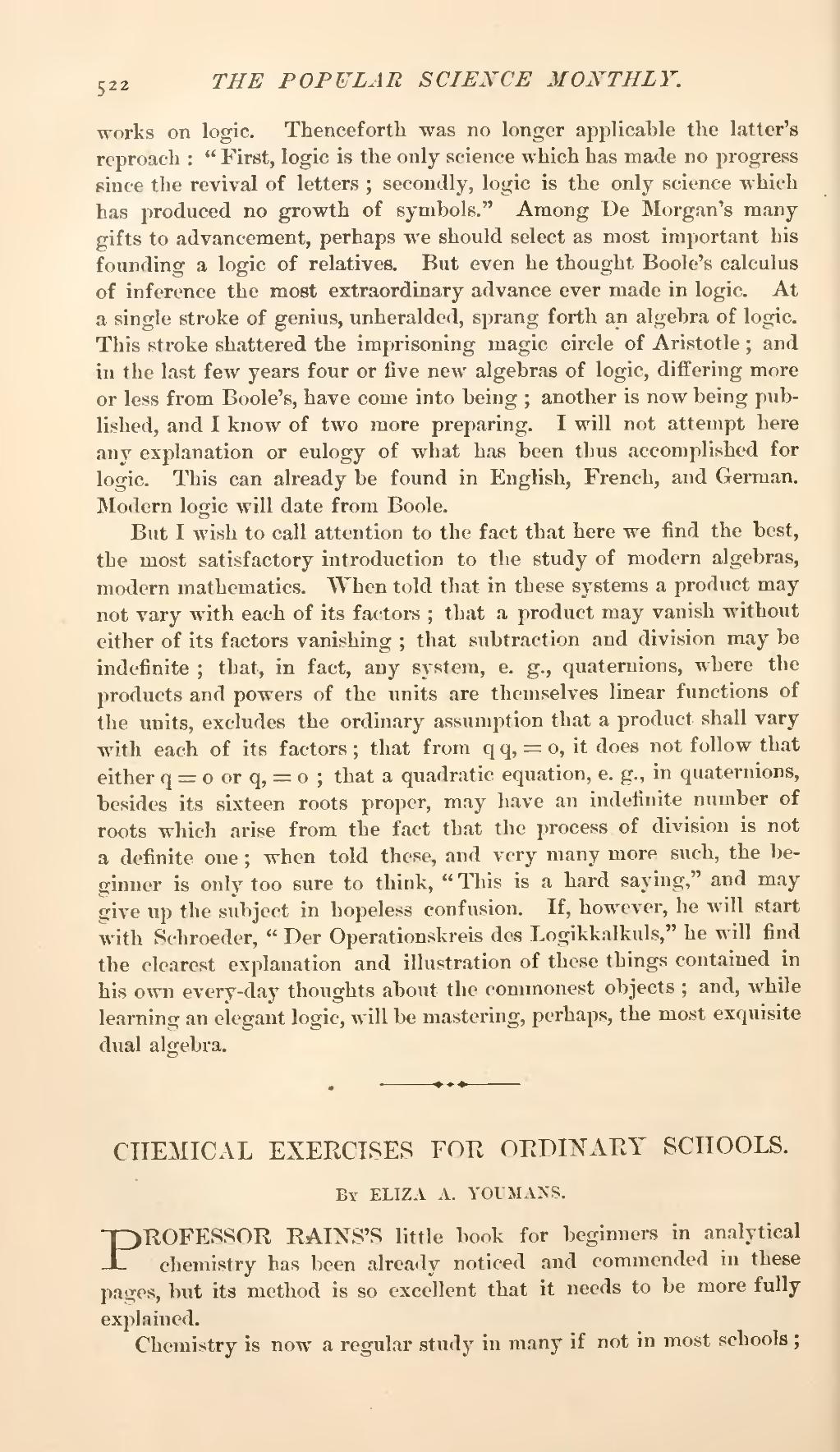works on logic. Thenceforth was no longer applicable the latter's reproach: "First, logic is the only science which has made no progress since the revival of letters; secondly, logic is the only science which has produced no growth of symbols." Among De Morgan's many gifts to advancement, perhaps we should select as most important his founding a logic of relatives. But even he thought Boole's calculus of inference the most extraordinary advance ever made in logic. At a single stroke of genius, unheralded, sprang forth an algebra of logic. This stroke shattered the imprisoning magic circle of Aristotle; and in the last few years four or five new algebras of logic, differing more or less from Boole's, have come into being; another is now being published, and I know of two more preparing. I will not attempt here any explanation or eulogy of what has been thus accomplished for logic. This can already be found in English, French, and German. Modern logic will date from Boole.
But I wish to call attention to the fact that here we find the best, the most satisfactory introduction to the study of modern algebras, modern mathematics. When told that in these systems a product may not vary with each of its factors; that a product may vanish without either of its factors vanishing; that subtraction and division may be indefinite; that, in fact, any system, e. g., quaternions, where the products and powers of the units are themselves linear functions of the units, excludes the ordinary assumption that a product shall vary with each of its factors; that from q q, o, it does not follow that either q o or q, o; that a quadratic equation, e. g., in quaternions, besides its sixteen roots proper, may have an indefinite number of roots which arise from the fact that the process of division is not a definite one; when told these, and very many more such, the beginner is only too sure to think, "This is a hard saying," and may give up the subject in hopeless confusion. If, however, he will start with Schroeder, "Der Operationskreis des Logikkalkuls," he will find the clearest explanation and illustration of these things contained in his own every-day thoughts about the commonest objects; and, while learning an elegant logic, will be mastering, perhaps, the most exquisite dual algebra.
| CHEMICAL EXERCISES FOR ORDINARY SCHOOLS. |
By ELIZA A. YOUMANS.
PROFESSOR RAINS'S little book for beginners in analytical chemistry has been already noticed and commended in these pages, but its method is so excellent that it needs to be more fully explained.
Chemistry is now a regular study in many if not in most schools;

